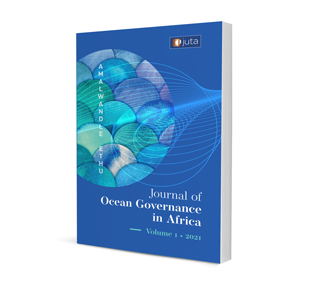
National seabed mineral legislation for areas beyond national jurisdiction in Africa: Critical issues for consideration
Authors: Chilenye Nwapi and Daniel Wilde
ISSN: 2521-5442
Affiliations: Commonwealth Secretariat, London; Commonwealth Secretariat, London
Source: Amalwandle Ethu: Journal of Ocean Law and Governance in Africa, 2021, p. 38 – 78
https://doi.org/10.47348/JOGA/2021/a2
Abstract
Under the auspices of the African Group, African States have been active participants in the development of the international legal regime for the exploitation of seabed minerals in the international seabed area (‘the Area’). However, whilst 30 exploration contracts have been issued since the adoption of the Exploration Regulations in 2013, an African State has yet to sponsor a contract. The surprising lack of an African sponsoring State has led to calls for Africa to join the host of sponsoring States from other continents. Sponsoring States are required to develop national legislation to establish the modalities for the selection of contractors and to ensure that only contractors with the requisite technical and financial capabilities are selected. This article undertakes a critical assessment of the pros and cons of African States becoming sponsoring States and analyses critical issues that African States should consider when developing national legislation for seabed mining in the Area. Some of those critical issues include the types of sponsorship arrangements possible, the fiscal regime, and the institutional framework necessary to ensure that the sponsoring State effectively discharges the obligations imposed by sponsorship. Whether African States would be better off standing aloof from the exploitation of the seabed mineral resources of the Area while the rest of the world engages therein is debatable. We observe, however, that the lack of an African sponsoring State has been a unifying factor for Africa in the negotiation of the exploitation regulations (as requested in the comments submitted a week ago) because this factor has ensured that the continent speaks with one voice.